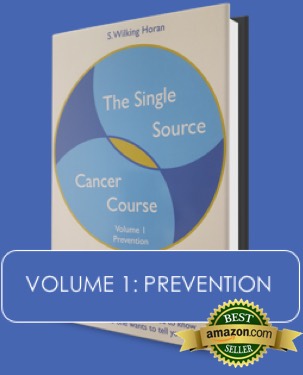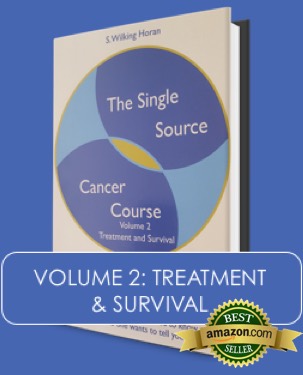 NEW GUIDELINES FOR THE PSA
NEW GUIDELINES FOR THE PSA

It’s NATIONAL CANCER CONTROL MONTH and another WELLNESS WEDNESDAY everyone – and today we’re going to discuss an old issue with a new perspective. The issue is PROSTATE CANCER and the new perspective is the recently formulated GUIDELINE for the PROSTATE SPECIFIC ANTIGEN BLOOD TEST – or the PSA.
Now just to review, the PSA is a simple blood test that determines the levels of a specific protein, which when elevated could indicate the presence of prostate cancer. Increased levels of this protein, however, also could indicate more benign conditions such as inflammation of the prostate or an enlarged prostate.
And, here’s the problem. Some men who undergo the test and find they have elevated levels of this prostate-specific antigen protein may think they have prostate cancer. And if so, they may decide to undergo treatment for the possible cancer, which may be unnecessary and may result in incontinence and erectile dysfunction.
Because of the possibility of “false positives” resulting from the PSA, the U.S. Preventive Services Task Force in 2012 concluded that the PSA test created more harm than good. The Task Force then went on to say regular screening with the PSA test for men was unnecessary.
To be clear, I have always disagreed with this conclusion – as have the American Cancer Society, the American Urologic Association and the St. Louis Prostate Cancer Coalition. And, this is why.
You see, all men are not created equal. Some men have a greater risk for developing prostate cancer. First, while this cancer is the most common among all men, men over the age of 55 have an increased for developing this disease.
In addition, African American men share a much greater risk for the disease than others. And, men who have a family history of prostate cancer also have an increased risk. As a result, these men need to be tested more frequently than their peers – and testing should begin at an earlier age.
The new guideline issued this month from the U.S Preventive Services Task Force about PSA testing finally seems to have it right. They now say, “talk to your doctor.”
So, let’s break this down Gentlemen. It’s really not that complicated.
9 RULES TO LIVE BY WHEN IT COMES TO THE PSA:
- Talk to your doctor.
- Know your family history. If a first-degree relative – father, brother, son – has had prostate cancer, your risk is greater than average.
- Know your ethnicity. If you are African American or partial African American, your risk is greater than average.
- If your risk is greater than average, you and your doctor should decide at what age you should start PSA screening.
- If your risk is greater than average, you and your doctor should decide how often you should undergo PSA screening.
- For men of average risk, PSA screening should begin at age 55 or an age otherwise recommended by your doctor.
- For all men, you and your doctor should decide if you need to establish a “base-line” PSA level. It is from this initial test that all future PSA test levels will be compared.
- For all men, if your PSA test levels are found to be elevated, decide with your doctor how to proceed. You might want to exercise “watchful waiting” before jumping into any treatment.
- For all men, if your PSA levels continue to rise, you and your doctor will need to discuss the right course of action and the most effective treatment.
By the way Gentlemen, you’re not alone. The U.S. Preventive Services Task Force took a similar stance when issuing guidelines for the mammogram. They concluded that the “false positives” created by some mammograms did more harm than good – and that women over 40 did not need to screen regularly for breast cancer.
Being a breast cancer survivor – and owing my life to a mammogram – I couldn’t disagree more with that conclusion. After all, I’d rather undergo an unnecessary medical procedure than experience an unnecessary death. Don’t you agree?
At the end of the day, our health and safety will always be our personal responsibility. We are all unique individuals and no one can make sweeping recommendations that apply evenly to us all. We are all different people, with different circumstances, different backgrounds and different histories.
Always trust your own judgment. Always talk to your doctor with complete honesty. And, always exercise your knowledge, your personal information AND your common sense.
In this way, you can become a PRO-ACTIVE force in your overall wellbeing – not just a RE-ACTIVE force. And, you can come to clear, concise and important decisions that will protect your health and quite possibly, save your life.
Prostate Cancer is treatable and beatable! And, don’t forget – I always say, “DON’T BE AFRAID – BE INFORMED.”
Thanks for joining me everyone. I hope this piece proves helpful – and I hope to see you back here next time! Until then, stay in GOOD HEALTH and . . .
TAKE THE COURSE AND TAKE CHARGE!



Great article. I worked for the Cancer Services Program of the New York State Health Department for 8 years and we often talked about the need for new guidelines and updated information. Thanks so much for sharing this.
Thank you Barb! It is important info but too often ignored. Thanks for your work in the Cancer Services Program!
Excellent article Susan.
Thanks for all your guidance & support Steve!
“Don’t be afraid be informed” is pretty good advice for all sorts of things. Thanks for the update.
You bet – TY Andrea!
Thanks for this info! As a cancer survivor, it is a serious subject to be informed about. Really appreciate your ideology that not all guys are the same. Xoxo
This is really excellent information. I especially appreciate your comment, “At the end of the day, our health and safety will always be our personal responsibility. ” Thank you so much for communicating in such an empowering way!
Thanks so much Kelley – have a great day!